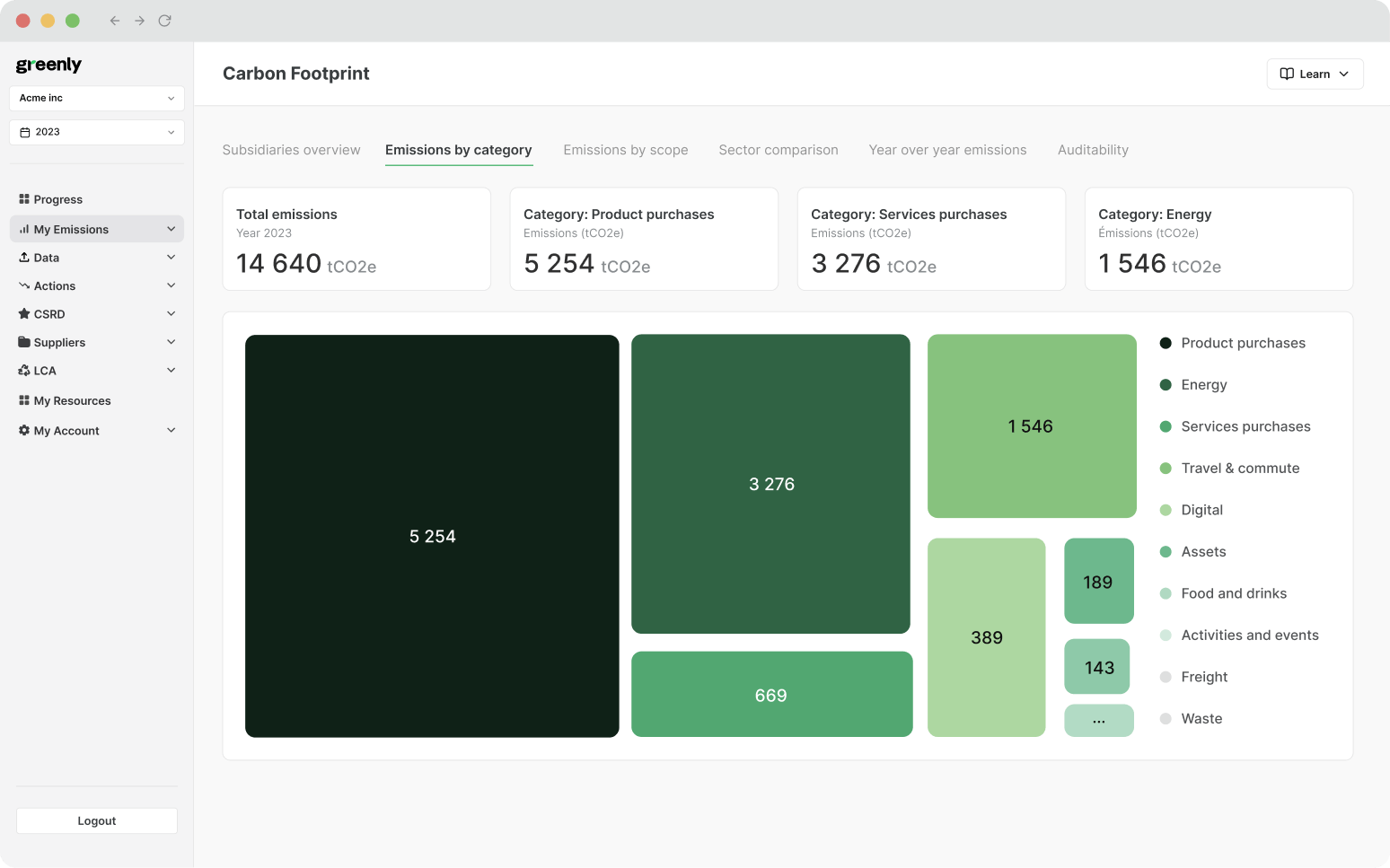
What are the 3 Pillars of Corporate Sustainability?
In this article, we'll explore what the 3 pillars of corporate responsibility are, why they're important, and how businesses can turn them into practical action.
ESG / CSR
Industries



In today’s fast-moving business world, keeping up with evolving ethical principles and business ethics isn’t always straightforward. What’s considered responsible or acceptable can shift quickly, shaped by changing social values, new technologies, and global events.
This article explores the challenge businesses face in navigating shifting ethical standards in a rapidly changing business landscape.
Ethical expectations in business aren’t fixed, they evolve in response to broader changes in society, technology, and the environment. Here are some of the central forces driving that evolution:
Many once-standard business practices are now viewed as unethical across different aspects of corporate governance, from labour conditions to data handling. Here are a few examples of corporate norms that were widely accepted not long ago but have since come under fire:
While some ethical expectations apply across the board, such as transparency, fairness, and environmental responsibility, different industries face unique pressures and risks. Understanding these nuances is key to addressing the most relevant concerns in your sector.
Here’s a snapshot of common ethical considerations by industry:
| Industry | Key Ethical Issues | Examples of Risk Areas |
|---|---|---|
|
Fashion & Retail
|
Labour practices, supply chain transparency, environmental sustainability | Sweatshop labour, fast fashion overproduction, unsustainable materials |
|
Technology
|
Data privacy, algorithmic bias, misinformation, ethical use of AI | Surveillance, lack of consent in data collection, deepfakes, disinformation |
|
Finance & Investment
|
Responsible investing, climate risk disclosure, social impact of lending/investments | Fossil fuel financing, greenwashing in ESG funds, discriminatory lending practices |
|
Food & Agriculture
|
Animal welfare, fair labour, environmental degradation, responsible sourcing | Deforestation for palm oil, pesticide use, exploitation of migrant workers |
|
Energy & Utilities
|
Emissions reduction, community impact, just transition | Fossil fuel reliance, land displacement, failure to invest in renewables |
|
Healthcare & Pharma
|
Access to medicines, clinical trial ethics, pricing transparency, public health outcomes | Unethical testing practices, inflated drug pricing, unequal access to treatment |
|
Transport & Logistics
|
Emissions, working conditions for drivers and warehouse staff, environmental impact of operations | Supply chain emissions, labour rights in gig economy, noise and air pollution |
|
Media & Communications
|
Freedom of expression, misinformation, content moderation | Platform bias, spread of fake news, failure to protect vulnerable groups from online harm |
|
Hospitality & Tourism
|
Cultural sensitivity, over-tourism, water waste, and strain on local resources, local economic impact, fair labour | Damage to heritage sites, exploitation of local communities, unsustainable water or energy use |
In the US, ethical standards vary more by industry and state, but several nationwide frameworks and enforcement trends shape expectations:
Federal Sentencing Guidelines for Organizations (FSGO) Encourages companies to implement ethics and compliance programs by offering reduced penalties for organizations with strong ethical safeguards.
SEC and FTC oversight Companies are increasingly held accountable for ESG-related disclosures, marketing claims, and corporate governance.
Sarbanes-Oxley Act (SOX) Reinforces ethical financial conduct and whistleblower protections for listed companies.
California’s Supply Chain Transparency Act Similar to the UK’s Modern Slavery Act, this requires companies doing business in California to disclose steps taken to prevent human trafficking.
While the US lacks a centralised ethics law, regulatory pressure, shareholder activism, and litigation risk all drive corporate ethics forward. Many firms voluntarily align with frameworks like SASB, GRI, or ISO 37001 (anti-bribery).
Failing to keep up with shifting ethical standards can have real financial, legal, reputational, and operational consequences. As stakeholder expectations rise, companies that lag behind are increasingly held to account.
Here are some of the most common consequences of inaction:
Public backlash can unfold quickly, especially when issues gain traction on social media. A single misstep, or failure to act on emerging concerns, can lead to boycotts, negative press, and long-term damage to brand credibility.
A clear example came in 2020, when Boohoo faced widespread criticism after an investigation found workers in its UK supply chain being paid as little as £3.50 an hour in unsafe conditions. Major retailers dropped the brand, and Boohoo lost over £1 billion in market value within days of the report’s release.
Consumers are increasingly value-driven, especially as expectations around the ethical role of companies in public life continue to rise, and trust can be hard to rebuild once it’s lost.
Investors want to see companies aligned with stakeholder values, not just shareholder interests. ESG-minded investors are paying closer attention to how companies manage ethical risks. Falling behind on environmental or social standards can lead to divestment, shareholder activism, or lower ESG scores, all of which can affect access to capital and share price performance.
For example, AkademikerPension, a Danish pension fund, terminated a DKK 3.2 billion contract with State Street Global Advisors over ESG misalignment. Similarly, Dutch pension fund PME publicly criticised BlackRock over its insufficient climate action and placed its €5 billion mandate under review.
As regulation catches up with public sentiment, ethical lapses can also lead to legal consequences. Companies are increasingly being asked to provide a clear document trail showing how environmental and human rights risks have been identified and addressed.
New laws, such as the EU’s Corporate Sustainability Due Diligence Directive, will require companies to ensure supply chains operate in accordance with environmental and human rights legislation or risk legal consequences. Non-compliant companies could face fines of up to 5% of global turnover and lose access to public contracts, turning ethical oversight into a material financial risk.
Employees increasingly want to work for organizations whose values align with their own - and where they feel respected by both leadership and colleagues. Ethical missteps, or a lack of transparency, can lead to internal dissatisfaction, higher turnover, and difficulty attracting talent. Customers and service users, too, are more likely to walk away from brands that don’t reflect their values.
According to a 2022 survey by Blue Beyond Consulting, 80% of U.S. and Canadian workers say it's important that their personal values align with their employer’s values, and nearly half would consider leaving if they didn’t.
To safeguard their reputation and ensure long-term success in a rapidly shifting landscape, businesses must go beyond reactive compliance. Staying ahead of ethical expectations means embedding ethics into the fabric of the organization through strategy, culture, leadership, and continuous learning.
Here are our top tips for companies looking to stay one step ahead:
A future-ready approach to ethics starts with being proactive, which means identifying risks early, setting clear expectations, and ensuring everyone understands their role in upholding them.
Those in positions of authority play a defining role in setting the tone for ethical behaviour across the organization. Senior leaders are expected to act not just in the company’s interest, but on behalf of its broader social responsibilities. When leaders lead by example, it sends a powerful message across the organization.
Creating a values-driven culture isn’t about one-off initiatives, it’s about what happens every day in teams, processes, and decision-making, where each person within the organization is treated with fairness, respect, and dignity.
Ethics evolve alongside public expectations and the standards of each profession. Companies that remain curious, flexible, and willing to learn are better positioned to keep pace with change.
Sustainability has become one of the most urgent ethical concerns for businesses today, and getting it right requires more than just ambition. At Greenly, we help companies take control of their environmental impact with a comprehensive suite of carbon management services.
Our services include:
| What Greenly Offers | How It Helps |
|---|---|
|
Full carbon accounting
|
We assess Scope 1, 2, and 3 emissions using accurate, real-time data tailored to your industry and operations. |
|
Actionable reduction plans
|
We help you create clear, tailored strategies to reduce emissions, aligned with science-based targets. |
|
Supply chain engagement
|
We help you identify and work with more sustainable suppliers, increasing transparency and reducing Scope 3 emissions. |
|
Lifecycle assessments (LCA)
|
Our LCA capabilities allow you to analyze the full environmental impact of your products, from raw materials to end-of-life, and make data-driven design and sourcing decisions. |
|
Regulatory and reporting support
|
From CSRD to SECR and beyond, we help ensure you’re ready for evolving sustainability disclosure requirements. |
Whether you’re just getting started or working toward ambitious decarbonization goals, Greenly gives you the tools and expert support to turn climate commitments into measurable action. Get in touch today to find out more.
